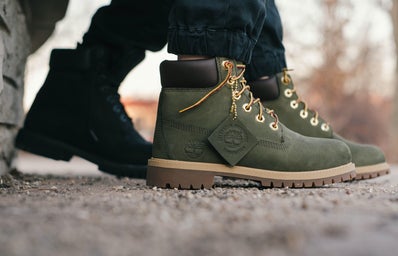Love at first swipe has become a norm in the mainstream dating world thanks to popularly straightforward—albeit infamously raunchy—‘hookup apps’ like Tinder. Tinder, TechCrunch reported, was piloted on college campuses and then launched in August 2012. The “dating-hookup hybrid,” as GQ calls it, made things sexier and, arguably, “sleazier” in its simplicity: instead of putting yourself out there to the same degree of standard dating websites, you simply accept or decline potential flirtations with a single swipe on your phone.
While the dirty, awkward convos Tinder provides can certainly make a boring night in extremely entertaining, games become old. Amanda Bradford, the creator of the latest and self-proclaimed “classy” dating app The League, encourages you to “Date Intelligently.”
The League currently operates only in San Francisco and just raised a $2.1 million seed round, according to Business Insider. The goal is to make the dating app experience more selective and more sophisticated. “We’re not saying Tinder doesn’t have its uses (hello Vegas!),” the company said, “but why not spend your time a little more…intelligently?”
After all, Bradford’s ultimate goal for The League is to create so-called power couples. So far, her mission has been a success; the app has reportedly matched 20,000 people since November, which has resulted in 19 couples.
How is The League different from the other dating apps like Hinge and Tinder? For starters, it serves the cream of the crop. While critics have deemed the app “elitist,” Bradford disagrees. She insists the app is merely “curated” based upon methods similar to those used by Ivy League schools and prestigious employers seeking only the best of candidates. In short, The League is the up-and-coming dating mecca for lawyers, doctors and tech executives, who are already frequenting the new app.
“We want people to think of The League as a little more grown up and tasteful, for young professionals who want to go out for a coffee or a drink and aren’t just about hooking up,” Bradford said.
To determine these qualifications, The League relies heavily on LinkedIn rather than on more leisurely social media platforms like Facebook. This, Bradford suggests, ensures that the potential partners’ personal and professional goals are in sync and equally ambitious.
The League uses an acceptance algorithm to verify that applicants are of the appropriate age group and that they are motivated, career-oriented individuals seeking a significant other. While The League believes in only the best for the best, that doesn’t mean you need to be an Ivy grad or an employee of a hot-shot company in order to qualify. So long as you express some sort of potential and a desire to pursue your professional dreams, you’re golden.
“It’s not an ‘If this, then yes, or, if no, then no’ algorithm,” Bradford told Business Insider, making clear that membership to The League is about more that one’s salary and title. “These people are going after their dreams. They’re just interesting, ambitious, and doing something they’re excited about.”
The League prides itself on its mission to “Keep It Classy.” When matching you with potential partners, the company conceals your online dating profile, preventing word of your quest for companionship from leaking to your friends, business acquaintances and clients. Further, The League makes sure users aren’t shown first connections or current coworkers, to decrease chances of uncomfortable encounters.
Using the app is simple and refined. Accepted users receive a couple of potential matches per day. Then, at the oh-so appropriate “happy hour” (5 p.m.), users can check in again for a new batch of matches to look over.
Bradford has a computer science background and, had she not pursued her startup dream, would most likely be in a product management role at Facebook. Prior to launching The League, Bradford worked at Salesforce, attended Stanford Graduate school and was an intern at elite venture capital firm Sequoia Capital. She had initially hoped to raise $750,000 for her venture, but after working with a number of angel investors (including several of her professors at Stanford), interest in her initiative grew.
IDG Ventures was the first to invest in June; Sherpa Ventures and others shortly followed. Bradford is looking to use this funding to grow her team, which currently sits at four employees.
Though the app is only available in San Francisco at the moment, Bradford has plans to grow; she says the demand is already high in New York City, where she has her sights set next. She’s looking to taking the venture abroad, too—namely to London.
Do you use dating apps like Tinder? Would you sign up for The League? Do you think it is an elitist app, or simply “curated,” as Bradford says?

